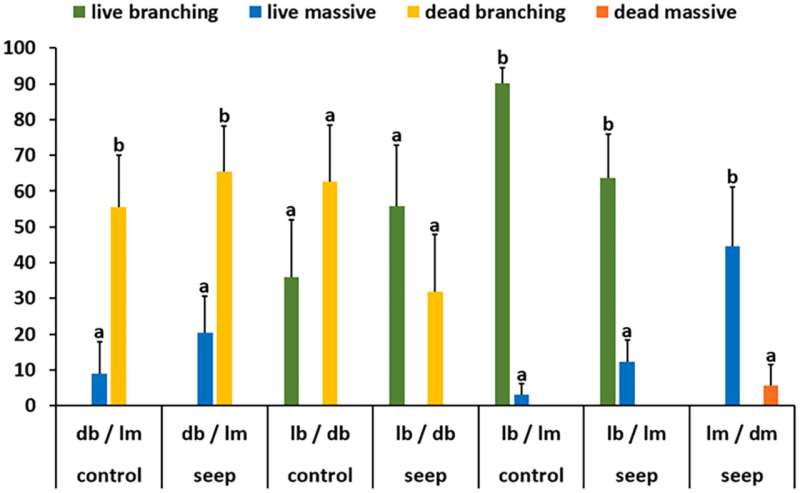This article has been reviewed according to Science X's editorial process and policies. Editors have highlighted the following attributes while ensuring the content's credibility:
fact-checked
peer-reviewed publication
trusted source
proofread
Ocean acidification turns certain fish species away from coral reefs, researchers find

A new study of coral reefs in Papua New Guinea shows ocean acidification simplifies coral structure, making crucial habitat less appealing to certain fish species.
While much media attention has focused on heat stress-induced coral bleaching, this finding, by a University of Adelaide research team led by Professor Ivan Nagelkerken, adds nuance to concerns about how global warming affects coral reefs.
Ocean acidification is caused by an increase in the level of carbon dioxide in oceanwater, leading to a reduction in pH. This makes calcium carbonate less available in the ocean, which corals use to build and repair their skeleton.
Professor Nagelkerken and his team show that, while ocean acidification in some instances does not reduce overall coral cover on a reef, the structures are less branched and therefore less appealing as habitat to some fish species. The study is published in the Journal of Animal Ecology.
Researchers observed two reefs in Upa-Upasina, Papua New Guinea: one located next to a volcanic seep releasing a steady stream of carbon dioxide, causing natural acidification, and another located 500 meters away unaffected by the volcanic gases.
"Aquarium experiments are rather simplistic and cannot adequately mimic the complex species interactions that commonly occur in nature," says Professor Nagelkerken.
"These reefs presented an incredible opportunity to directly compare current and future-analogous conditions side-by-side, with a full suite of ecological interactions in place."
Of the five damselfish species Professor Nagelkerken's research team observed, two displayed a preference for complex, branched structures; while two others were not disinclined to interact with simplified coral structures but still sought out complex habitats even as they became scarce. A fifth rubble-specialist species associated most strongly with rubble.
"Ocean acidification has the potential to reshuffle ecological communities globally, lead to the loss of key habitats and biodiversity, reduce fisheries' productivity, and have negative physiological impacts on many marine animals and plants," says Professor Nagelkerken, from the University of Adelaide's School of Biological Sciences.
"It might also lead to a reduction in populations of various fish species, which could create novel species community structures that might have lower biodiversity and not be as resilient as present-day communities. It could also clearly distinguish winner species from loser species. And if this ocean acidification affects fisheries species, some species that recreational and commercial fishers target might become less abundant."
The acidification conditions observed in the research at the reef beside the volcanic seep are expected to occur in the ocean more broadly as the increasing level of human-caused carbon emissions in Earth's atmosphere are absorbed by the ocean.
"If we continue to emit carbon dioxide unabated, at some point in the future we could see such levels of ocean acidification in Australia," says Professor Nagelkerken, who worked alongside colleagues from James Cook University as part of an international team that included researchers from New Caledonia, Hong Kong and Japan.
"The effects observed in our study would be similar in Australian ecosystems, because many of the coral and fish species that we studied in Papua New Guinea also occur on the Great Barrier Reef.
"But temperate reefs might also be affected, with ocean acidification having negative effects on cold-water reef builders such as oysters, mussels and calcareous algae, among others."
The way to avoid this looming future, according to Professor Nagelkerken, is simple. "We should increase our efforts to reduce CO2 emissions globally," he says.
More information: Jamie Priest et al, Out of shape: Ocean acidification simplifies coral reef architecture and reshuffles fish assemblages, Journal of Animal Ecology (2024). DOI: 10.1111/1365-2656.14127
Journal information: Journal of Animal Ecology
Provided by University of Adelaide



















